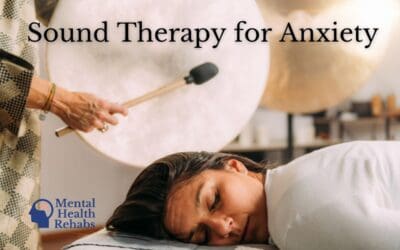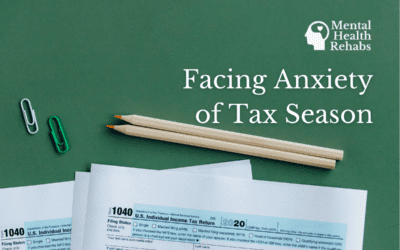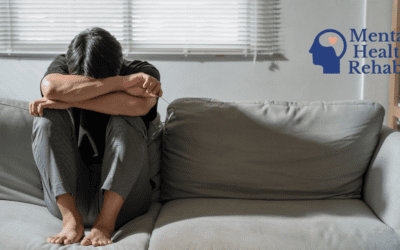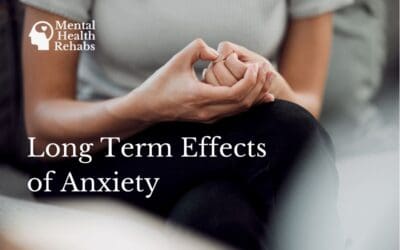Panic Disorder.

Do I Have Panic Disorder?
You may have a condition called panic disorder if you experience unexpected panic attacks and live in fear of another attack. Although the cause of panic disorders is unknown, studies have shown it stems from a phobia of internal sensations. For instance, someone who becomes angry has an accelerated heart rate that may escalate into anxiety and feel like they’re having a heart attack. At the moment it feels like you’re spiraling and overcome with your emotions, making it difficult to calm down. This disorder is unique in the sense that it can take a toll on our bodies making it difficult to diagnose. The fear and anxiety can be personified through chest pain, sweating, and shortness of breath, which can diminish the quality of life.Diagnosing Panic Disorder
A licensed healthcare professional will use the Diagnostic and Statistical Manual of Mental Disorders (DSM) by the American Psychiatric Association to diagnose panic disorder. According to the DSM-5, panic disorder is the presence of panic attacks that are recurrent and often unexpected. At least one panic attack is followed by one month or more of the person fearing that they will have more attacks. This leads to them changing their behavior and avoiding situations that might trigger an attack.
Other criteria to consider: the attacks must not be direct physiological effects of a substance (such as drug or use of medication) or a general medical condition. The attacks are not accounted for by another mental disorder such as social anxiety disorder.
A panic attack is characterized by four or more of the following symptoms:
- Palpitations
- accelerated heart rate
- Sweating
- Trembling/shaking
- Shortness of breath
- Feeling like you’re choking
- Chest pain
- Nausea
- Abdominal distress
- Feeling dizzy, lightheaded, or faint
- Fear of losing control
- Fear of dying
- Chills
- Hot flashes
Panic Disorder Treatment
If you or someone you love is experiencing symptoms of panic disorder, consult with a healthcare professional and seek proper treatment.
There are many options to manage symptoms of panic disorder. For example, psychotherapy, also known as talk therapy, is among the most common forms of treatment to reduce symptoms. Though talk therapy takes time, it’s been proven effective because it allows you to find the core of your anxiety and ultimately work towards facing your fear.
Therapy can also be combined with anti-anxiety medication like selective serotonin reuptake inhibitors (SSRIs), serotonin and norepinephrine reuptake inhibitors (SNRIs), and benzodiazepines. It’s important to note that just like any other medication, there are side effects and risks. Discuss treatment options with your doctor to find what works for you.
Sources
https://www.nimh.nih.gov/health/publications/panic-disorder-when-fear-overwhelms
Related Articles
How Sound Therapy is Helping Thousands Ease Their Anxiety
Anxiety is one of the most common mental health conditions that affects millions of people worldwide. Traditional anxiety treatments such as medication and therapy can be helpful but have limitations. Sound therapy is a holistic approach to anxiety management that...
Facing Anxiety of Tax Season
As the tax season rolls around, it brings with it a wave of anxiety for countless individuals. Despite the universal nature of tax obligations, the emotional impact of this season varies greatly, with many experiencing heightened levels of stress and anxiety. It...
6 Factors You Shouldn’t Ignore When It Comes to Mental Health
It's easy to sideline mental health amidst daily commitments and routines in our fast-paced world. Often, we only recognize its significance when facing burnout or health issues. The gravity of this oversight is evident in the fact that, as of 2021, 9.2 million U.S....
6 Long Term Effects of Anxiety
It’s normal for people to feel anxious from time to time, but clinically diagnosed anxiety can be immensely disruptive to a person’s life and have far-reaching—and sometimes permanent —impacts on physical and psychological well-being. 3 Long-Term Physical...
Don’t Struggle Alone.
Get Help Today.
Reaching out for help for yourself or a loved one can be overwhelming and stressful, but it doesn’t have to be. If you are struggling to find the right help, or even know where to get started, please feel free to call our 24/7 helpline.
Begin your mental health journey right now!





